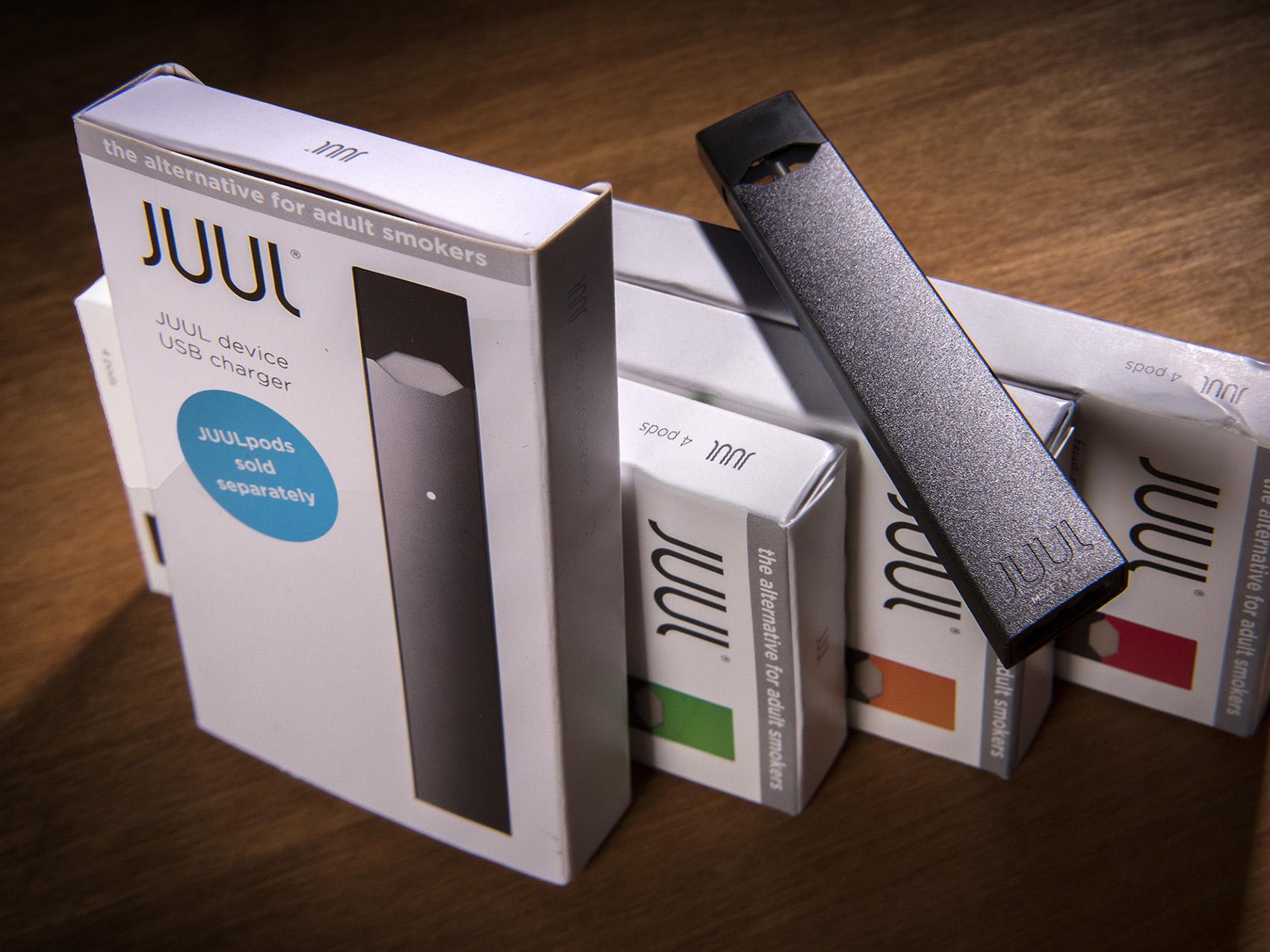Juul Labs filed to extend the stay on the Food and Drug Administration (FDA) ban Tuesday, saying the agency did not review all the evidence it presented.
The FDA banned sales of Juul e-cigarettes Thursday, citing a lack of sufficient evidence regarding the toxicological profiles of its products.
The FDA said that Juuls provided insufficient or contradictory information about the risks of using its products in its application for market approval, including whether potentially harmful chemicals could leak from Juul pods.
A court granted Juul’s request for a temporary stay on the order the next day.
In a filing with the US District Court of Appeals for the District of Columbia Circuit, Juul alleged that the FDA disregarded more than 6,000 pages of information it provided about the aerosols produced by heating the liquid in its pods and inhaled by users.
Juul contended that if the FDA had carried out a more thorough assessment, as it did for previous applicants, it would have seen evidence proving that those substances were not detectable in the aerosol that its users inhale.
British American Tobacco and NJOY, two competing e-cigarette manufacturers, have received FDA approval for their products over the past year, despite the government rejecting some of the flavored goods those businesses submitted. The FDA claimed it gave the tobacco-flavored goods produced by those companies their approval because they showed how they could benefit adult smokers and balance the risk to consumers who are underage.
According to Juul, its rivals’ applications have all been approved, and the FDA did not explain why they were held to a different standard. Juul had been seeking approval for its vaping device and tobacco- and menthol-flavored pods.
Since 2018, Juul had been the market leader in e-cigarettes, according to Euromonitor International. The company held a 54.7 percent share of the US$9.38 billion e-vapor market since 2020.



 Trump Family Files $10 Billion Lawsuit Over IRS Tax Disclosure
Trump Family Files $10 Billion Lawsuit Over IRS Tax Disclosure  Rio Tinto Shares Hit Record High After Ending Glencore Merger Talks
Rio Tinto Shares Hit Record High After Ending Glencore Merger Talks  Federal Appeals Court Blocks Trump-Era Hospital Drug Rebate Plan
Federal Appeals Court Blocks Trump-Era Hospital Drug Rebate Plan  Global Markets Slide as AI, Crypto, and Precious Metals Face Heightened Volatility
Global Markets Slide as AI, Crypto, and Precious Metals Face Heightened Volatility  Minnesota Judge Rejects Bid to Halt Trump Immigration Enforcement in Minneapolis
Minnesota Judge Rejects Bid to Halt Trump Immigration Enforcement in Minneapolis  U.S.-India Trade Framework Signals Major Shift in Tariffs, Energy, and Supply Chains
U.S.-India Trade Framework Signals Major Shift in Tariffs, Energy, and Supply Chains  FDA Targets Hims & Hers Over $49 Weight-Loss Pill, Raising Legal and Safety Concerns
FDA Targets Hims & Hers Over $49 Weight-Loss Pill, Raising Legal and Safety Concerns  Eli Lilly and Novo Nordisk Battle for India’s Fast-Growing Obesity Drug Market
Eli Lilly and Novo Nordisk Battle for India’s Fast-Growing Obesity Drug Market  Global PC Makers Eye Chinese Memory Chip Suppliers Amid Ongoing Supply Crunch
Global PC Makers Eye Chinese Memory Chip Suppliers Amid Ongoing Supply Crunch  Dollar Near Two-Week High as Stock Rout, AI Concerns and Global Events Drive Market Volatility
Dollar Near Two-Week High as Stock Rout, AI Concerns and Global Events Drive Market Volatility  Novo Nordisk Stock Surges After FDA Approves Wegovy Pill for Weight Loss
Novo Nordisk Stock Surges After FDA Approves Wegovy Pill for Weight Loss  Bank of Japan Signals Readiness for Near-Term Rate Hike as Inflation Nears Target
Bank of Japan Signals Readiness for Near-Term Rate Hike as Inflation Nears Target  Trump Endorses Japan’s Sanae Takaichi Ahead of Crucial Election Amid Market and China Tensions
Trump Endorses Japan’s Sanae Takaichi Ahead of Crucial Election Amid Market and China Tensions  Dow Hits 50,000 as U.S. Stocks Stage Strong Rebound Amid AI Volatility
Dow Hits 50,000 as U.S. Stocks Stage Strong Rebound Amid AI Volatility 































